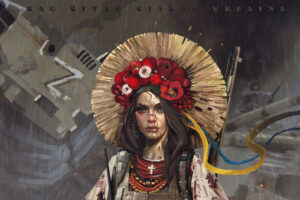Data publikacji w serwisie: 12 paźdzernika 2023 r.
Call for papers

IS WAR A PEACE? THE FUTURE OF PHILOLOGY
The topic of war, which is especially current in the context of the Russian invasion of Ukraine, raises questions regarding, among others, the condition of contemporary humanities. We hope that an in-depth analysis of the suggested theme will be helpful in determining the importance of the growing need for reflection in the light of current events and rethinking the role of humanities in shaping public opinion in terms of the cultural, philosophical and linguistic aspects.
In its recent research, linguistics focuses on changes and transformations in the context of crisis or breakthrough events that lead to the initiation or activation of various linguistic phenomena and processes. This is clearly reflected in mass media, which are the quickest in responding to external stimuli. As it is observed in Russian society, the deformation of its values and the relegation of universal, moral and ethical dominants are expressed in the everyday language use.
The ongoing destruction of traditional morals in contemporary Russian society, as can be assumed, is correlated with the principle of organising power that is particular to Russia, being primarily based on the demonstration of power and the obliteration of social, cultural and political diversity.
In contemporary socio-cultural research, the devaluation of moral values is also justified, among others, by the growing importance of the culture of violence manifested not only through direct acts of coercion or repression, but also through ideology. The role of these representations is to disqualify individual forms of existence independent of the centralised government and to shape the idea that power is the sole defender of national interests.
Reflection on the mechanisms of power and their impact on culture evokes direct associations with the works of George Orwell and can contribute to expanding the scope of potential research. Taking advantage of the image of a totalitarian state depicted in the novel 1984, the writer presents similar tools and means of exercising power. The party slogan „war is peace“ constitutes one of the vivid examples of the Orwell’s concept of „doublethinking“, illustrating the possibility of both representing and distorting reality through language. In this context, language is used not only to create an image of the world, but also to control the masses and manipulate consciousness.
The theory of linguistic determinism, analysed within the framework of political discourse, among others, can also be applicable to reflection on the role and place of the artist in the creative process and the role of the reader (viewer) in perceiving a work of art.
The journal’s editors hope that these themes will serve as an encouragement to undertake in-depth linguistic, literary and comparative analyses focused on the following notions (or similar ones):
Linguistics
- Does today’s social narrative shape morals and priorities, or is it rather a tool requisite to create an individualised and distorted image of the world for a narrow group of people?
- Consequently, is there any evolution in the Russian system of values, while elements of hate speech, linguistic aggression, the narrative of rivalry and domination originating from national chauvinism can be experienced increasingly frequently?
- Will the recent developments in language analysis allow us to distinguish truth from falsehood, reality from simulation?
- Does dialogue still exist as a basic form of exchanging ideas, or has it already been preventively buried as a dangerous pretext for exposing the one-sided propaganda discourse?
Literary and Comparative Studies
- Can Dostoyevsky be read after Bucha? How can the historical tragedies influence the interpretation and perception of classical literature on a deeper level?
- The chronotope of „doublethinking“. Will the Russian language be Pushkin’s language or Putin’s language? Will the words precisely name concepts (war or „the special military operation“)?
- The artist and power. Will Russian culture: language, literature, music, film and fine arts be subjected to ideologisation in the modern world? Does culture have to be entangled in politics? What is the writer’s duty? What is creative independence and what is conformism?
- How are the concepts of „slavery culture“ and „violence culture“ manifested and interpreted? What is the meaning of visual, narrative and symbolic elements of each of the cultures and how do they influence the perception and interpretation of works of art?
- What sociological and cultural factors are the basis of the next wave of emigration from Russia (escape, „self-purification of Russian society“, search for freedom)? How are they correlated with the historical contexts of the previous waves of emigration and what potential consequences can they have?
- How should the concept of „Russianness“ be interpreted in the context of the current events? The definition of „Russophobia“ and the cultural factors contributing to its formation.
- What is meant by the concepts of „(post)colonialism“ and „(neo)imperialism“ in the context of contemporary socio-cultural and literary discourses?
Deadlines and editorial timetable
- Submission of complete papers: October 31, 2024.
- Publication of the journal: 2025.
- Languages of submissions: English, Russian, Polish.
- Scientific Editors: Stefano Aloe, Bartosz Osiewicz.
- We kindly ask you to submit complete papers (25,000-40,000 characters with spaces including bibliography) through the OJS platform available at: https://pressto.amu.edu.pl/index.php/strp/login
- Detailed editorial guidelines can be found at: https://pressto.amu.edu.pl/index.php/strp/about/submissions
- More information about the journal and its indexation is available on the journal’s website: https://srp.web.amu.edu.pl/en/about-the-journal/
(Illustration by: Stanislav Lunin)
